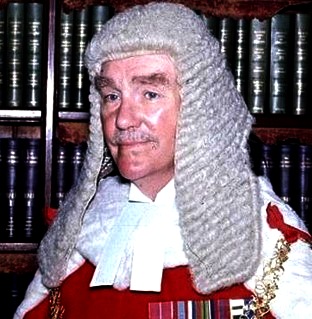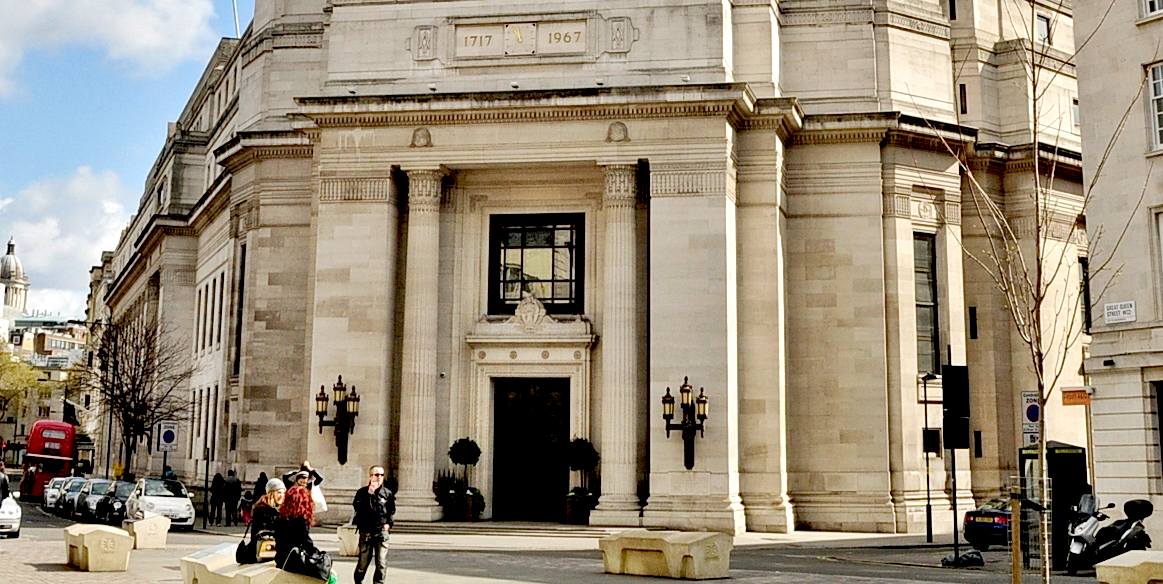|

BROTHERHOOD
- Police officers band together to protect each other and their chums in
other local authorities. But, every once in a while a whistleblower or
other turn of events reveals that there is corruption and that there has
been a cover
up.
'Aiding and abetting' is a legal doctrine related to the guilt of someone who
aids or abets in the commission of a crime. It exists in a number of different countries and generally allows a court to pronounce someone guilty for
aiding and
abetting in a
crime even if they are not the principal offender.
In civil terms regarding damages, this is termed vicarious liability.
The Magistrates' Courts Act 1980 (c. 43) is an Act of the
Parliament of the
United
Kingdom. It is a consolidation Act:
An Act to consolidate certain enactments relating to the jurisdiction of, and the practice and procedure before, magistrates’ courts and the functions of justices’ clerks, and to matters connected therewith, with amendments to give effect to recommendations of the Law Commission.
It codifies the procedures applicable in the magistrates' courts of England and Wales and largely replaces the Magistrates' Courts Act 1952. Part I of the Act sets out provisions in relation to the courts' criminal jurisdiction, and Part II in relation to civil proceedings.
Section 1 of the Act empowers a justice of the peace to issue a summons or arrest warrant alleging the commission of a crime against an identifiable person.
SUMMARY
OFFENCES
In the Accessories
and Abettors Act of 1861, the crime does not apply to summary offences, but section 44 (1) of the Magistrates' Courts Act 1980 is to the like effect:
"A person who aids, abets, counsels or procures the commission by another person of a summary offence shall be guilty of the like offence...
"

In the United
Kingdom, The 'Accessories and Abettors Act 1861' provides that an accessory to an indictable offence shall be treated in the same way as if he had actually
committed the offence
himself or herself. Section 8 of the Act, as amended, reads:
"Whosoever shall aid, abet, counsel, or procure the commission of any indictable offence, whether the same be an offence at common law or by virtue of any Act passed or to be passed, shall be liable to be tried, indicted, and punished as a principal offender."
CASE LAW
In AG's Reference (No 1 of 1975) (1975) QB 773, Lord Chief Justice Widgery stated that the words in section 8 should be given their ordinary meaning.
-
The natural meaning of "to aid" is to "give help, support or assistance to" and it will generally although not necessarily take place at the scene of the crime. It is not necessary to prove that there was any agreement between the principal and the alleged accessory, nor is there a need to prove a causative link between the aid and the commission of the offence by the principal.
-
The natural meaning of "to abet" is "to incite, instigate or encourage" and this can only be committed by an accessory who is present when the crime is committed. This does imply either an express or implied agreement between the parties although there is no need to prove any causative link between what the abettor did and the commission of the offence.
-
"To counsel" is "to encourage" and most usually covers advice, information, encouragement or the supply of equipment before the commission of a crime. It implies agreement with the principal.
In R v Clarkson (1971) 3 AER 344, the defendant merely watched while fellow soldiers raped a woman in their barracks in Germany. Counselling or advising must have an effect on the mind of the principal to constitute the necessary encouragement in fact, so Clarkson was found not guilty. No causative link between the counselling and the commission of the full offence is required so long as the offence committed was within the scope of the counselling.
In R v Calhaem (1985) 2 AER 266, the defendant paid a private detective to murder a woman and was charged with counselling or procuring the murder. It was held that the offence committed must be within the scope of the counselling, i.e., the principal does not deliberately depart from the plan. The detective merely intended to frighten the woman but hit her with a hammer. If, however, the accessory does not specify what offence is to be committed, but leaves it to the principal to decide what offence is to be committed, the accessory will be liable.
-
"To procure" means "to produce by endeavour, by setting out to see that it happens and taking the appropriate steps to produce that happening". The principal can be entirely "innocent" of the procurer's acts so long as there is proof of a causal link between the procuring and the commission of the offence by the principal offender, e.g., as in AG’s Reference (No 1) (1975) 2 AER 684, spiking a drink procures a drunk-driving offence.
MAGISTRATES
COURT ACT 1980 - PART I Criminal Jurisdiction and Procedure
(enacted)
Jurisdiction to issue process and deal with charges
1. Issue of summons to accused or warrant for his arrest
2. Jurisdiction to deal with charges
3. Offences committed on boundaries,
etc.
Committal proceedings
4. General nature of committal proceedings
5. Adjournment of inquiry
6. Discharge or committal for trial
7. Place of trial on indictment
8. Restrictions on reports of committal proceedings
Summary trial of information
9.Procedure on trial
10.Adjournment of trial
11.Non-appearance of accused: general provisions
12.Non-appearance of accused: plea of guilty
13.Non-appearance of accused: issue of warrant
14.Proceedings invalid where accused did not know of them
15.Non-appearance of prosecutor
16.Non-appearance of both parties
Offences triable on indictment or summarily
17.Certain offences triable either way
18.Initial procedure on information against adult for offence triable either way
19.Court to begin by considering which mode of trial appears more suitable
20.Procedure where summary trial appears more suitable
21.Procedure where trial on indictment appears more suitable
22.Certain offences triable either way to be tried summarily if value involved is small
23.Power of court, with consent of legally represented accused, to proceed in his absence
24.Summary trial of information against child or young person for indictable offence
25.Power to change from summary trial to committal proceedings, and vice versa
26.Power to issue summons to accused in certain circumstances
27.Effect of dismissal of information for offence triable either way
28.Using in summary trial evidence given in committal proceedings
Power to remit person under 17 for trial to juvenile court
29.Power of magistrates' court to remit a person under 17 for trial to a juvenile court in certain circumstances
Remand for medical examination
30.Remand for medical examination
Powers in respect of offenders
31.General limit on power of magistrates' court to impose imprisonment
32.Penalties on summary conviction for offences triable either way
33.Maximum penalties on summary conviction in pursuance of section 22
34.Mitigation of penalties, etc.
35.Fixing amount of fine
36.Restriction on fines in respect of young persons
37.Committal to Crown Court with a view to borstal sentence
38.Committal for sentence on summary trial of offence triable either way
39.Cases where magistrates' court may remit offender to another such court for sentence
40.Restriction on amount payable under compensation order of magistrates' court
Miscellaneous
41.Restriction on grant of bail in treason
42.Restriction on justices sitting after dealing with bail
43.Bail on arrest without warrant
44.Aiders and abettors
45.Incitement
46.Corporations
47.Service of summons out of time after failure to prove service by post
48.Return of property taken from accused
49.Taking of finger-prints
50.Construction of references to complaint in enactments dealing with offences
PART II Civil Jurisdiction and Procedure
Jurisdiction to issue summons and deal with complaints
51.Issue of summons on complaint
52.Jurisdiction to deal with complaints
Hearing of complaint
53.Procedure on hearing
54.Adjournment
55.Non-appearance of defendant
56.Non-appearance of complainant
57.Non-appearance of both parties
Civil debt
58.Money recoverable summarily as civil debt
Orders for periodical payment
59.Periodical payment through justices 'clerk
60.Revocation, variation, etc., of orders for periodical payment
61.Periodical payments payable by one person under more than one order
Payments to children
62.Provisions as to payments required to be made to a child, etc.
Orders other than for payment of money
63.Orders other than for payment of money
Costs
64.Power to award costs and enforcement of costs
Domestic proceedings
65.Meaning of domestic proceedings
66.Composition of magistrates' courts for domestic proceedings: general
67.Domestic courts and panels
68.Combined domestic court panels
69.Sittings of magistrates' courts for domestic proceedings
70.Jurisdiction of magistrates' courts in inner London for domestic proceedings
71.Newspaper reports of domestic proceedings
72.Report by probation officer on means of parties
73.Examination of witnesses by court
74.Reasons for decisions in domestic proceedings
PART III Satisfaction and Enforcement
General provisions
75.Power to dispense with immediate payment
76.Enforcement of sums adjudged to be paid
77.Postponement of issue of warrant
78.Defect in distress warrant and irregularity in its execution
79.Release from custody and reduction of detention on payment
80.Application of money found on defaulter to satisfy sum adjudged
Sums adjudged to be paid by a conviction
81.Enforcement of fines imposed on young offenders
82.Restriction on power to impose imprisonment for default
83.Process for securing attendance of offender for purposes of section 82
84.Power to require statement of means
85.Power to remit fine
86.Power of magistrates' court to fix day for appearance of offender at means inquiry etc.
87.Enforcement of payment of fines by High Court and county court
88.Supervision pending payment
89.Transfer of fine order
90.Transfer of fines to Scotland or Northern Ireland
91.Transfer of fines from Scotland or Northern Ireland
Sums adjudged to be paid by an order
92.Restriction on power to impose imprisonment for default
93.Complaint for arrears
94.Effect of committal on arrears
95.Power to remit arrears
96.Civil debt: complaint for non-payment
PART IV Witnesses and Evidence
Procuring attendance of witness
97.Summons to witness and warrant for his arrest
Evidence generally
98.Evidence on oath
99.Proof of non-payment of sum adjudged
100.Statement of wages to be evidence
101.Onus of proving exceptions, etc.
Evidence in criminal cases
102.Written statements before examining justices
103.Evidence of children in committal proceedings for sexual offences
104.Proof of previous convictions
105.Deposition of person dangerously ill
Offences
106.False written statements tendered in evidence
107.False statements in declaration proving service, etc.
PART V Appeal and Case Stated
Appeal
108.Right of appeal to the Crown Court
109.Abandonment of appeal
110.Enforcement of decision of the Crown Court
Case stated
111.Statement of case by magistrates' court
112.Effect of decision of High Court on case stated by magistrates' court
Supplemental provisions as to appeal and case stated
113.Bail on appeal or case stated
114.Recognizance's and fees on case stated
PART VI Recognizance’s
Recognizance’s to keep the peace or be of good behaviour
115.Binding over to keep the peace or be of good behaviour
116.Discharge of recognizance to keep the peace or be of good behaviour on complaint of surety
Other provisions
117.Warrant endorsed for bail
118.Varying or dispensing with requirement as to sureties
119.Postponement of taking recognizance
120.Forfeiture of recognizance
PART VII Miscellaneous and Supplementary
Constitution and place of sitting of magistrates' courts
121.Constitution and place of sitting of court
Appearance by counsel or solicitor
122.Appearance by counsel or solicitor
Process
123.Defect in process
124.Process valid notwithstanding death, etc., of justice
125.Warrants
126.Execution of certain warrants outside England and Wales
Limitation of time
127.Limitation of time
Remand
128.Remand in custody or on bail
129.Further remand
130.Transfer of remand hearings
131.Remand of accused already in custody
Restrictions on imprisonment
132.Minimum term
133.Consecutive terms of imprisonment
Detention for short periods
134.Detention in police cells, etc.
135.Detention of offender for one day in court-house or police station
136.Committal to custody overnight at police station for non-payment of sum adjudged by conviction
Fees, fines, forfeitures, etc.
137.Fees
138.Remission of fees
139.Disposal of sums adjudged to be paid by conviction
140.Disposal of non-pecuniary forfeitures
Clerks to justices
141.Clerks to justices
Power to rectify mistakes etc.
142.Power of magistrates' court to re-open cases to rectify mistakes etc.
Power to alter sums specified in certain provisions
143.Power to alter sums specified in certain provisions
Rules
144.Rule committee and rules of procedure
145.Rules: supplementary provisions
Rules about juvenile courts
146.Rules relating to juvenile court panels and composition of juvenile courts
Occasional court-houses
147.Occasional court-house
Interpretation
148." Magistrates' court"
149.Isles of Scilly
150.Interpretation of other terms
Miscellaneous
151.Application of Act to distress for rates
152.Saving for juvenile courts
153.Magistrates' court may sit on Sundays and public holidays
Repeals, short title, etc.
154.Consequential amendments, transitional provisions, repeals, etc.
155.Short title, extent and commencement
SCHEDULES
SCHEDULE 1
Offences Triable Either Way by Virtue of Section 17
SCHEDULE 2
Offences for which the value involved is relevant to the mode of trial
SCHEDULE 3
Corporations
SCHEDULE 4
Maximum Periods of Imprisonment in Default of Payment
SCHEDULE 5
Transfer of Remand Hearings
SCHEDULE 6
Fees
SCHEDULE 7
Consequential Amendments
SCHEDULE 8
Transitional Provisions and Savings
SCHEDULE 9
Repeals

ALL
SEEING EYE - Seen as an elite club for business and other ambition,
the Masons do a lot of good. Unfortunately, like any institution, this
brotherhood will contain members that err on the wrong side of the law.
It is those members that bring the majority of honest members into
disrepute.
Freemasonry, as it exists in various forms all over the world, has a membership estimated by the United Grand Lodge of England at around six million worldwide. The fraternity is administratively organised into independent Grand Lodges (or sometimes Grand Orients), each of which governs its own Masonic jurisdiction, which consists of subordinate (or constituent) Lodges. The largest single jurisdiction, in terms of membership, is the United Grand Lodge of
England (with a membership estimated at around a quarter million). The Grand Lodge of
Scotland and Grand Lodge of
Ireland (taken together) have approximately 150,000 members. In the
United States total membership is just under two million.
LINKS
& REFERENCE
Sussex
Masons
Government
publications 2010 to 2015 government policy local council transparency
and accountability
2010
to 2015 Government policy local council transparency and accountability
Government
policies local council transparency and accountability
Government
news guidance to help councillors with new transparency agenda
https://en.wikipedia.org/wiki/Police_Act_1996
https://en.wikipedia.org/wiki/Accessories_and_Abettors_Act_1861
http://www.legislation.gov.uk/ukpga/Vict/24-25/94/section/8
http://www.legislation.gov.uk/ukpga/Vict/24-25/94/contents/enacted
https://www.gov.uk/government/policies/local-council-transparency-and-accountability
https://www.gov.uk/government/news/new-guidance-to-help-councillors-with-new-transparency-agenda
https://www.gov.uk/government/publications/2010-to-2015-government-policy-local-council-transparency-and-accountability
https://en.wikipedia.org/wiki/Knights_Templar
https://en.wikipedia.org/wiki/Freemasonry
http://www.sussexmasons.org.uk/
http://twitter.com/JaspJackson
HERSTMONCEUX
& PARISH COUNCIL
CONTACTS
COUNCIL
MEMBERS SITTING ON - AREA PLANS SOUTH 2015
Andrew
Long - (no email address)
David
White - cllr.david.white@wealden.gov.uk
Diane
Dear - cllr.dianne.dear@wealden.gov.uk
Charles
Peck - cllr.charles.peck@wealden.gov.uk
Chris
Hardy - cllr.chris.hardy@wealden.gov.uk
Chris
Triandafyllou - cllr.chriss.triandafyllou@wealden.gov.uk
Daniel
Shing - daniel.shing@wealden.gov.uk
Dick
Angel - cllr.dick.angel@wealden.gov.uk
Barby
Dashwood-Morris - cllr.barby.dashwood-morris@wealden.gov.uk
Barry
Marlowe - cllr.barry.marlowe@wealden.gov.uk
Bill
Bentley - cllr.bill.bentley@eastsussex.gov.uk
John
Blake - cllr.john.blake@wealden.gov.uk
Lin
Clark - cllr.lin.clark@wealden.gov.uk
Nigel
Coltman - cllr.nigel.coltman@wealden.gov.uk
Nigel
McKeeman - cllr.nigel.mckeeman@wealden.gov.uk
Raymond
Cade - cllr.raymond.cade@wealden.gov.uk
Robert
Standley -
Ron
Cussons - cllr.ron.cussons@wealden.gov.uk
Stephen
Harms - cllr.steve.harms@wealden.gov.uk
Stephen
Shing - cllr.stephen.shing@wealden.gov.uk
Susan
Stedman - cllr.susan.stedman@wealden.gov.uk
SUSSEX POLICE OFFICERS
Aran
Boyt
Joe
Edwards
Giles
York
Gordon
Staker
Kara
Tombling
Ken
Jones
Paul
Whitehouse
Robert
Lovell
Sarah
Jane Gallagher

THIS
SITE CONTAINS MANY EXAMPLES OF COUNCIL'S CRIMINAL BEHAVIOUR - With
thanks to Action Groups across the country for the supply of real case
history and supporting documents. *THAT THE PUBLIC MAY KNOW*
Vicarage Lane, Hailsham,
East Sussex, BN27 2AX T: 01323 443322
Pine Grove, Crowborough, East Sussex, TN6 1DH T: 01892
653311
http://www.wealden.gov.uk
 
|




